A Voyage Into the Past
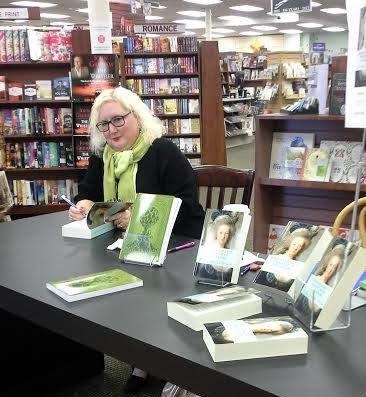
“Now is probably the best time to be an author in the entire history of the world.”
Q&A with Mary-Eileen Laughland Russell ’84
Degree
Bachelor of Arts
Title
Psychology
From her first published novel Trianon in 1997 to her most recent continuing work on the Henrietta of France Trilogy, Mary-Eileen Laughland Russell ’84 (pen name Elena Maria Vidal) has remained consistently inspired by European history in her many works of fiction. You can find her on Amazon and at her blog.
In the conversation below, we hear from Laughland Russell about her journey from enthusiastic young novelist (she wrote her first at age 15) to her time at Hood. She majored in psychology but credits her French and history classes with informing her author’s voice. She discusses some of her published novels of historical fiction, the best and worst things about writing, and what advice she has for aspiring authors.
You publish under the nom de plume “Elena Maria Vidal.” How did you choose your pen name?
I took as my pen name a variation of the name of my Spanish grandmother, Maria Magdalena Vidal, to honor her. She was in the Philippines during WW2, and while her husband was captive in a Japanese concentration camp, she worked with the underground, hiding guerrilla soldiers from the invaders. She is one of the bravest people I have ever known.
In 1998, you came Home to Hood to host a book signing for your first Trianon book; had the campus changed much since 1984? What memories were conjured when you stepped back on campus?
Yes, the campus had changed dramatically. Everything was very elegant. Not that it wasn’t elegant before, just more upscale. It was 1998, and I graduated in 1984. There was a brand-new library, a student center with a coffee shop, a huge new bookstore and other new buildings. At the time, I could not help remembering that my first public speech occurred while I was a senior at Hood, at a Learning Lunch arranged by my history professor Dr. Len Latkovski. I spoke on the murder of the Russian imperial family and the mystery of Anastasia. So, returning there as a published author was a thrill as well as a way of validating the confidence that my professors had placed in me.
You shared in an earlier email that your French and history professors were your “favorites.” Who were they and what made them so special to you?
I was a psych major, but I received better grades in history and French, so I began taking more classes in those subjects to boost my average. My favorite professor was Dr. Latkovski, who did a lot to encourage me to change my course of studies to history. I also am grateful to Dr. Mindel, another history professor, who wrote many recommendation letters for me. And I will forever be grateful for the superb training in French I received from Dr. Kantor and Mademoiselle Moran. Knowledge of French has been indispensable in my travels and my research; I would not have accomplished anything without it.
Dolly Parton wrote her first song “Little Tiny Tasseltop” at age 5; at what age did you start writing?
I began writing as soon as I learned to string sentences together. I was late learning to read; it was well into first grade when I finally learned. But by second grade, I was at the top of my class and keeping a diary at home. Writing went along with reading, and the more I read, the more I wanted to be a writer. By the time I was 9, I had a notebook of ideas for novels, plus I wrote short stories and essays. I wrote my first novel at age 15.
Your first published work was 2009’s The Night’s Dark Shade: A Novel of the Cathars. What prompted you to explore this period in history in your narrative?
Actually, my first published work was Trianon in 1997, followed by Madame Royale in 2000. Both were followed by Kindle and paperback editions of those works. The Night’s Dark Shade was written as a response to an agent who told me I should try to write a romance novel in addition to historical fiction. So, I tried. I had been interested in the Cathars since taking Medieval history at Hood. I had read a couple novels about them, one of which was Zoé Oldenbourg’s Destiny of Fire. I studied the Cathars in depth in grad school at SUNY Albany. I discovered, however, that while they are often presented as being pro-woman, in actuality nothing could have been further from the truth. They equated pregnancy with diabolical possession, and women were considered untouchable for their male ministers. Some Cathar teachings, particularly the anti-semitic ones, were later embraced by the Nazis. In many ways, they were not only anti-woman but anti-human. After visiting a former Cathar castle in the south of France, I began to weave a story, which after multiple rewritings with several agents became The Night’s Dark Shade. It was intended as a romance novel, and there is a love story, but like everything I write it generated controversy, since I love to explore the deeper issues about which people have disagreed in the past and the present.
What do you enjoy most about writing? Conversely, what do you enjoy least about it?
There is no “high” comparable to writing, especially when it becomes a journey into the unknown. You set out to accomplish one thing, but as you write, the characters take on a life of their own, which is bound to happen, especially if they are historical characters whom you have thoroughly researched. Before you know it, they are having conversations which were unplanned, and you learn more about them and their world than you thought you already knew. I want my novels to be a voyage into the past, because that is what writing them is like for me. What I dislike about writing is that it is sedentary, but that cannot be helped. I also dislike the fact that there never seems to be enough time for all the writing that I would like to do.
Do you have any thoughts about how a digital world has affected you as a reader and writer?
Authors nowadays must market their own books, with some publicity help from the publishers. I have worked with publishers, and I have freelanced; I have found being active on social media to be vital no matter what. Beginning in 2006, I began to build a social media presence, which has grown over the years and has helped to sell my books all over the world, as well as generating speaking gigs, interviews and reviews. I love having my readers write to me and engage in discussions, which the digital age has made possible. It also makes research easier. I have been able to access old books in foreign libraries that someone happened to photocopy and put online. Through Kindle, many classic works needed for research are free, so time and money are saved. Freelance “independent” publishing is easy, once you figure out what you are doing, and I have come to prefer it. Now is probably the best time to be an author in the entire history of the world, once you have a platform and build a following.
What advice would you give to a current Hood student or fellow alum who aspires to be a professional writer?
I would recommend reading the best writing available in the English language. With my first two novels, I filled my mind with Shakespeare, Dickens, Jane Austen, the Brontës, Poe, F. Scott Fitzgerald, Lucy Montgomery and many, many others. I also read the great French authors like Hugo, Balzac and Stendhal. I cannot read Russian, but I read translations of Tolstoy, Dostoevsky and Pasternak. Later, I read translations of Isaak Dinesen’s works, which are beyond what I would ever hope to attain. Also, when working on a project, I like to visit art galleries and museums and soak in the great works of art as well as the creative genius of little-known contemporary artists. Great art and beauty purge the brain. Most importantly, there is music. I like to write with Italian opera in the background, but music is very personal to each writer. Whatever sets the mood for the work at hand is helpful.
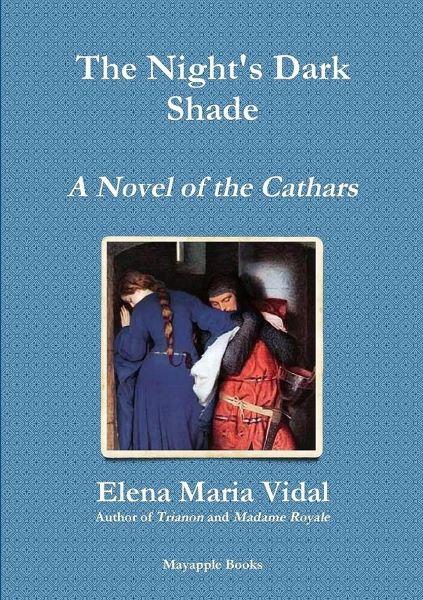
The Night's Dark Shade: A Novel of the Cathars, by Elena Maria Vidal
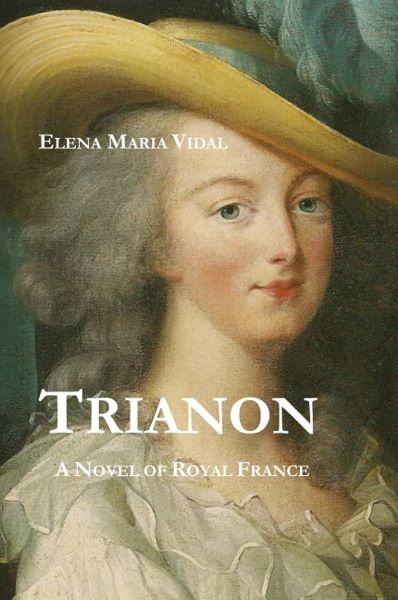
Trianon: A Novel of Royal France, by Elena Maria Vidal
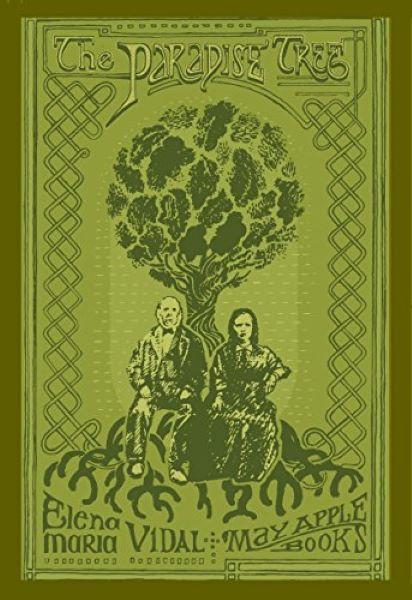
The Paradise Tree by Elena Maria Vidal
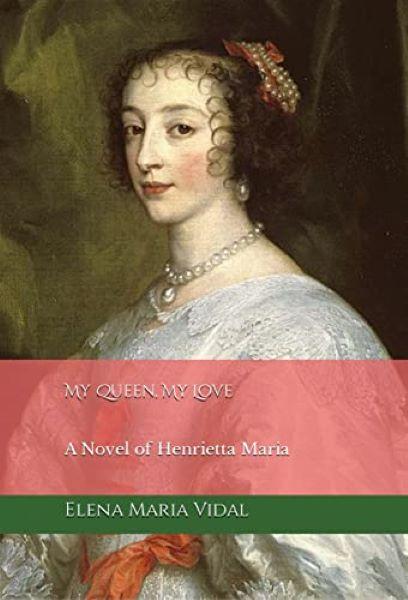
My Queen, My Love: A Novel of Henrietta Maria, by Elena Maria Vidal
Are you ready to say Hello?
Choose a Pathway
Information will vary based on program level. Select a path to find the information you're looking for!
